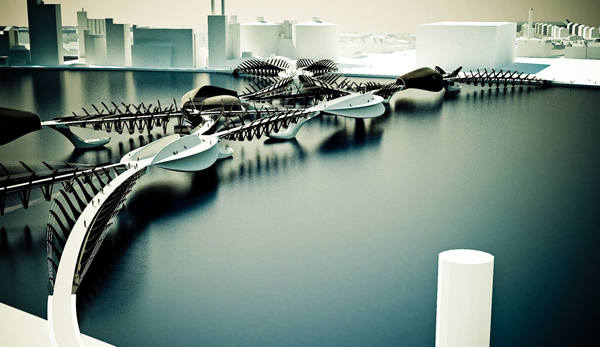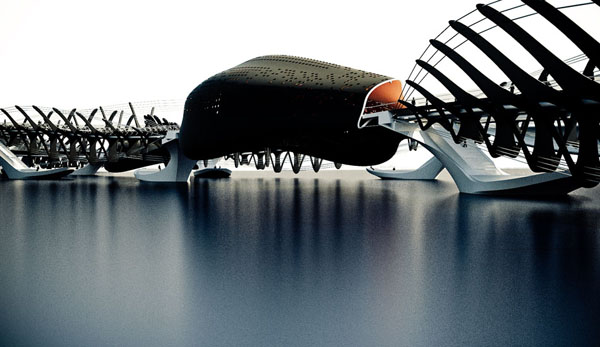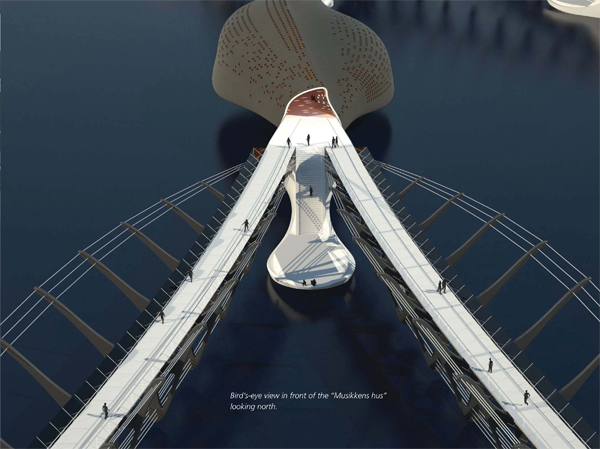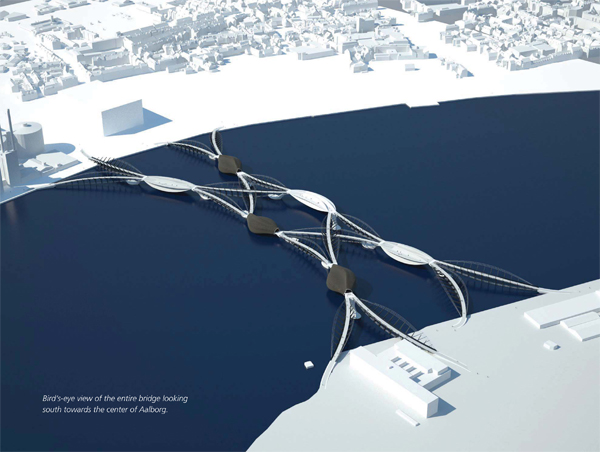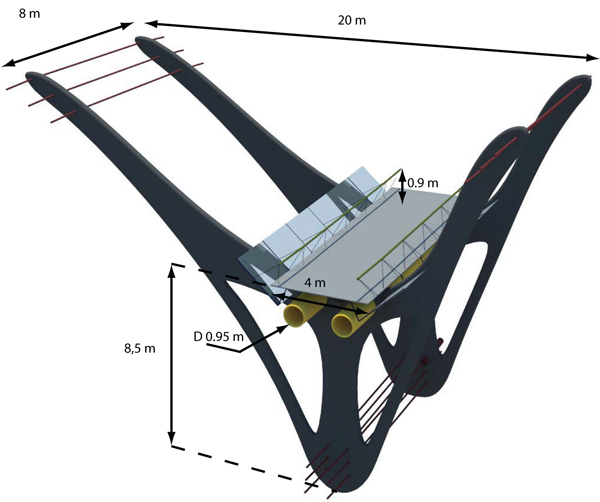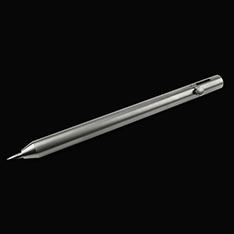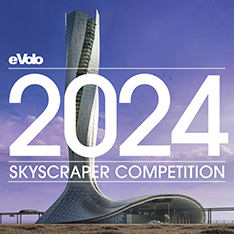Designed to connect the two shores of the Limfjord seaway in Denmark, the project explores the structural, experiential and functional variability of bridges through use of parametric tools. It was part of a research project aimed at discovering possibilities in associative geometry and the building of structures, functions and materials into one model where it could analyzed and change according to selected criteria. It develops and tests methods of parametric design and digital/analogue form-finding.
The bridge will be used for light traffic and will connect the Nørresundby area to the future urban context at the east harbor and the House of Music site. Instead of simply facilitating communication between future architectural interventions, the bridge introduces a visual direction, imposing a spatial statement to be followed. The idea of flow is expanded by introducing several paths that create diverse pedestrian experiences. Users are offered the option to choose different paths and rooms-they are given the ability to design their own crossing scenario. Using the notions of floating material and open spatial qualities of the fjord, the project aims to distance itself from the city architecture.
Students: Mathias Kræmmergaard Kristensen, Christian Raun Jepsen
Supervisors: Jens Klitgaard, Poul Henning Kirkegaard
Aalborg University: Institute of Architecture and Design

